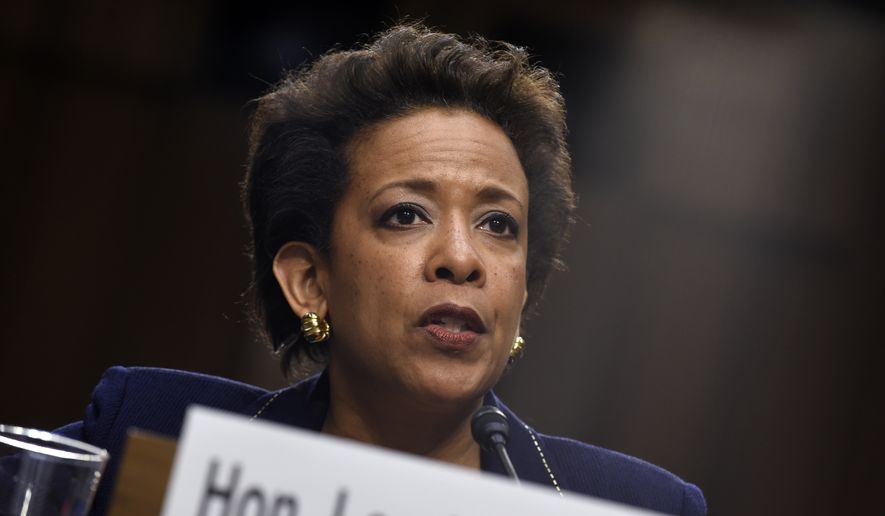OPINION:
The longer the United States Senate puts off the vote on her confirmation the less likely Loretta Lynch will become the attorney general. Some Democrats, in particular Sen. Dick Durbin of Illinois, have played the usual race card but so far none of the groups that specialize in expressions of outrage have said much, if anything.
Few senators are enthusiastic about Mrs. Lynch. She is not an exceptional legal scholar nor a particularly gifted prosecutor; if confirmed, she would probably be a middling attorney general, neither great nor an embarrassment. Her support derives mostly from the tradition of giving the president the Cabinet he wants.
The vote, when and if it comes, is not likely to be comfortable for President Obama, and it might be close. With only four Republicans counted on to join the lockstep Democrats, the decision might well fall to Vice President Joe Biden, who under the Constitution is entitled to vote to break a tie. Such a confirmation would be an embarrassment for the Obama administration — better than losing, but not much better.
This makes the vote of each senator doubly important. There’s another card that might be played, not a race card but a wild card. An investigation into the dealings of Sen. Robert Menendez of New Jersey, a Democrat, is pending, and there is widespread speculation in Washington that an indictment on corruption charges is coming soon. There is no formal procedure to guide a senator into recusing himself from voting, as in the case of the Supreme Court where justices have the option of recusal if the court hears a case in which a justice thinks there is an actual or perceived conflict of interest. Senators, on the other hand, are counted on to do the right thing. Mr. Menendez will be entitled to confirm or reject Mrs. Lynch, who as attorney general would supervise his trial, if there is one.
A senator in this position might reach an agreement with the White House — usually called a “deal” — so that the investigation would be suspended in exchange for his vote to confirm the prospective attorney general. There’s more: Issues raised by the uncovering of the so-called “Secret Docket” in the U.S. attorney’s office in New York, which she currently heads, renders suspect any commitment by Mrs. Lynch to recuse herself from anything having to do with Mr. Menendez.
The Lynch nomination, which looked good when the president sent it to the Senate, now looks “lose-lose” for nearly everyone. Rather than rush the vote, as some Democrats want to do, a vote could be postponed indefinitely as long as the Menendez investigation is open. Every president is entitled to pick his team, but sometimes the judgment of the Senate says otherwise. Democratic presidents and Republican presidents have had to bite the bullet and admit defeat. The best option, unpleasant as the prospect may be at the White House, is for Mr. Obama to withdraw the nomination and find a candidate for whom the Senate can vote its wholehearted and overwhelming assent.




Please read our comment policy before commenting.